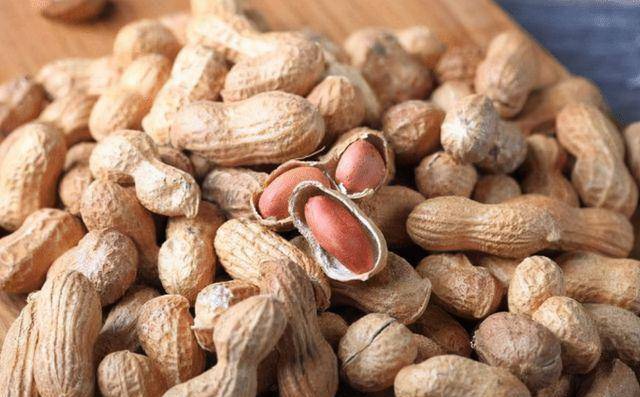Introduction: Peanuts, as a common type of nut in clinical practice, are often regarded as a snack by many people while watching dramas or chatting, and they can also be found on people’s dining tables.
Different individuals may adopt different cooking methods. Many male friends enjoy deep-fried peanuts as a side dish, not only for their good taste but also to increase the intake of nutrients in the body.
On the other hand, some female friends choose to consume raw peanuts to replenish blood. So, what are the differences between eating raw peanuts and cooked peanuts? Let’s find out today.
What are the differences between eating raw peanuts and cooked peanuts? Let’s hear what the doctors have to say.
Taste difference:
The most obvious difference between raw peanuts and cooked peanuts lies in their taste. Raw peanuts have a crisper texture and a milky aroma.
However, after being roasted or cooked, the fresh fragrance of peanuts tends to diminish significantly, often with a heavier seasoning taste.
Nutritional difference:
Raw peanuts can retain most of their nutrients, especially their plant-based proteins, which can be as high as around 36.97%.
However, after being cooked at high temperatures, peanuts tend to produce more oil, so frequent consumption of cooked peanuts may lead to weight gain.
Benefits of Eating Raw Peanuts
Relieve bad breath
Bad breath is not only related to diet but also possibly connected to organ functions and certain diseases. Insufficient liver detoxification function can lead to reflux, causing bad breath and bitterness, affecting one’s image and self-confidence. Regular consumption of raw peanuts can help freshen your breath, as their alkaline components can eliminate oral odors, easing any embarrassing situation.
Cough relief and stomach nourishment
For male friends who smoke frequently, persistent coughing may be an issue. The harmful substances in cigarettes can affect intestinal function, leading to inadequate gastrointestinal motility. Consuming raw peanuts can alleviate these symptoms, as the nutritious components can nourish the lungs, relieve coughs, and aid in stomach health. The protein in peanuts can repair the stomach and lung mucosa, promoting normal organ function. If you suffer from coughing or stomach pain, peanuts can be a solution.
Protect Cardiovascular Health
As dietary habits influence chronic metabolic diseases in our society, the prevalence of conditions like diabetes, hypertension, coronary heart disease, and hyperlipidemia is increasing. While medical science continues to advance, there is no complete cure for cardiovascular diseases, and medication is the primary approach. To better protect cardiovascular health, consider regularly consuming raw peanuts. Eating 15 peanuts a day can enhance blood circulation, improve vascular elasticity, and safeguard cardiovascular well-being.
Benefits of Eating Cooked Peanuts
Enhance memory
Cooked peanuts contain substantial amounts of phospholipids and choline, essential substances for the nervous system. These components can delay brain aging, prevent cerebral thrombosis, promote blood circulation, and enhance memory function.
Skincare
Cooked peanuts produce a significant amount of saturated fatty acids, which can effectively nourish the skin, providing a more radiant and supple appearance.
In addition, the nutrients in peanuts can help eliminate excess free radicals in the body, giving the skin a radiant glow from within and offering beauty benefits.
Lower cholesterol levels
Cooked peanuts are rich in fatty acids and various amino acids, which can help break down cholesterol and prevent its accumulation, thus lowering cholesterol levels and stabilizing blood lipids.
Weight loss and slimming down
Peanuts are rich in dietary fiber, promoting a feeling of fullness. Despite losing some fat content during high-temperature cooking, peanuts can still be consumed by individuals aiming to lose weight. Eating peanuts can generate a sense of fullness, prevent excessive carbohydrate intake, and aid in weight loss.
Avoid These Two Kinds of Peanuts
Moldy peanuts
Moldy peanuts can contain aflatoxins, a potent carcinogen and a significant risk factor for liver cancer. If you notice moldy peanuts that taste bitter, dispose of them to prevent food poisoning.
Bitter peanuts
If peanuts taste increasingly bitter while consuming them, they may be unfit for consumption. Bitter peanuts indicate spoilage, posing a greater risk of food poisoning after consumption.
Further Reading: How to Store Peanuts?
1. Thoroughly wash peanuts with shells and sun-dry them.
2. After sun-drying, store the peanuts in a dry, cool place.
3. Put shelled peanuts in a jar with a lid and store it in a cool, ventilated area to extend shelf life.
4. Roast peanuts in a pan, allow them to cool in a dry, cool place to enhance aroma and prolong storage time.
Conclusion: In summary, whether eating raw or cooked peanuts, each has its own benefits and drawbacks for health. It’s essential to consume peanuts in moderation and wisely to avoid any health complications.


